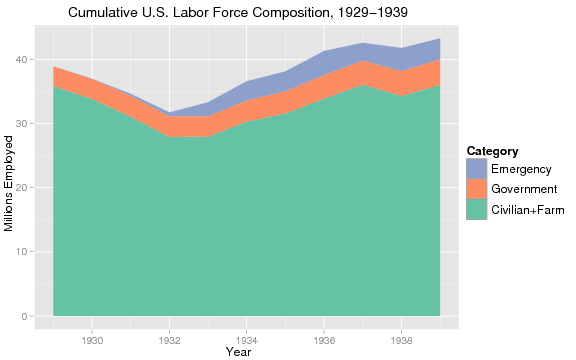by Ingrid Robeyns on November 19, 2008
“The answer: “:http://www.ad.nl/utrecht/2783837/Onderzoek_naar_ruimere_afwerkplek.html they are too big for the afwerkplekken that were built around 1986 in Dutch cities such as Utrecht, and so the drivers are having a hard time getting access. Afwerkplekken? You don’t know what that is, and your Dutch-English internet translator doesn’t know how to translate this word?
Afwerkplekken are, as the picture in the “newspaper article”:http://www.ad.nl/utrecht/2783837/Onderzoek_naar_ruimere_afwerkplek.html shows, places where the client of a prostitute can drive to, and have sex with her. Basically it looks like a parking, with walls and with bins. They are provided by the local governments. Literally it means ‘a place to finish the work’.
Sometimes this country really amazes me.
by Kieran Healy on November 19, 2008
Soc Blogger Jeremy Freese won this year’s Interactive Fiction Competition, where the goal is to write a text-based puzzle game in the tradition of stuff like Infocom classics. The premise of Jeremy’s game, Violet, is summarized by the Chronicle of Higher Education:
It’s noon and you’ve still got 1,000 words to type. That might not seem like much, but it’s been months since you’ve last worked on your dissertation and distractions are plentiful. To make matters worse, your girlfriend, Violet, says she’s out the door and flying back to Australia if you don’t finish the paper by the end of the day.
What’s your next move?
This is the premise for Violet, a text-based computer game in which a graduate student is the main character. As the student, you must fight through countless distractions and solve a number of puzzles to finish the paper in time to save your relationship. The story is told by Violet, who allows you to examine objects in your office and ask for hints.
Here is a review. Naturally, a sequel must now be in the works. Who should the protagonist be? What situation should they face? Obvious possibilities include a disaffected English professor teaching somewhere in a state beginning and ending a vowel, whose only creative outlet is bitter, overwritten Chronicle columns; a busily networking scholar-blogger desperate to finagle an invitation to appear on Bloggingheads.tv; or perhaps the crisis of a senior faculty member whose long history of abusive pseudonymous commenting is suddenly and inadvertently exposed.
by Henry Farrell on November 19, 2008
Dani Rodrik had a provocative “blogpost”:http://rodrik.typepad.com/dani_rodriks_weblog/2008/11/what-a-surprise.html a little while back:
Here is the dilemma we cannot evade. If we want a truly global financial system, we need to acquiesce in a global regulator and a global lender of last resort. If we do not want the latter, we cannot have an integrated global financial system, so we must acquiesce in–gasp!–capital controls.
The counterargument that I’ve been hearing from people (well, one significant person anyway) involved in the Obama transition process is twofold. First – that it would take far too long to create any global regulatory structure, given differences in national level regulatory schemes. Second, that we don’t need any binding global regulations anyway, and that everything we need to do can be done through dialogue between the national regulators that already exist. Maybe the best way to think this through is to look at the best example that we have of a transnational regulatory system with teeth – the European Union.
The EU’s experience reinforces the claim that it is really difficult to get national regulatory systems to play nicely with each other, and it is _especially_ difficult to get them to play nicely in the realm of banking and financial system regulation, because these regulations are (a) really important, (b) reflect genuinely different national priorities and banking systems, and (c ) also reflect the desires of strongly embedded interest groups in the national systems that like things the way they are (the Italian central bank, for example, is effectively beholden to a number of national banks inside and outside the _salotto buono_ and unsurprisingly these national banks want to keep the current system unchanged).
However, it also provides strong evidence of the problems of weak regulation. One of the major reasons why the European financial system is finding it hard to cope is exactly the lack of a Europe level regulatory backstop and lender of last resort, that could deal with banks that are effectively playing in a Europe-wide (if not worldwide) market. National governments are trying to do what they can, but their efforts are sometimes pretty wobbly. And the EU experience completely belies the claim that regulatory dialogues are a good substitute for comprehensive supranational regulation. If there is one thing that Europe does to a fault, it’s regulatory dialogues. But they do diddly-squat to stop countries defecting when they are in hard situations (e.g. the Irish offer to guarantee bank deposits when its credibility came under attack, Germany’s follow-up behaviour etc). This isn’t to say that one can easily create a global regulator with teeth and genuinely binding regulatory power – building one would be somewhere between very difficult and effectively impossible. It is to say that Rodrik’s conundrum is a real one – and the claim that governments can muddle through with a little more coordination and talk among themselves is almost certainly wishful thinking.
by Kieran Healy on November 19, 2008
